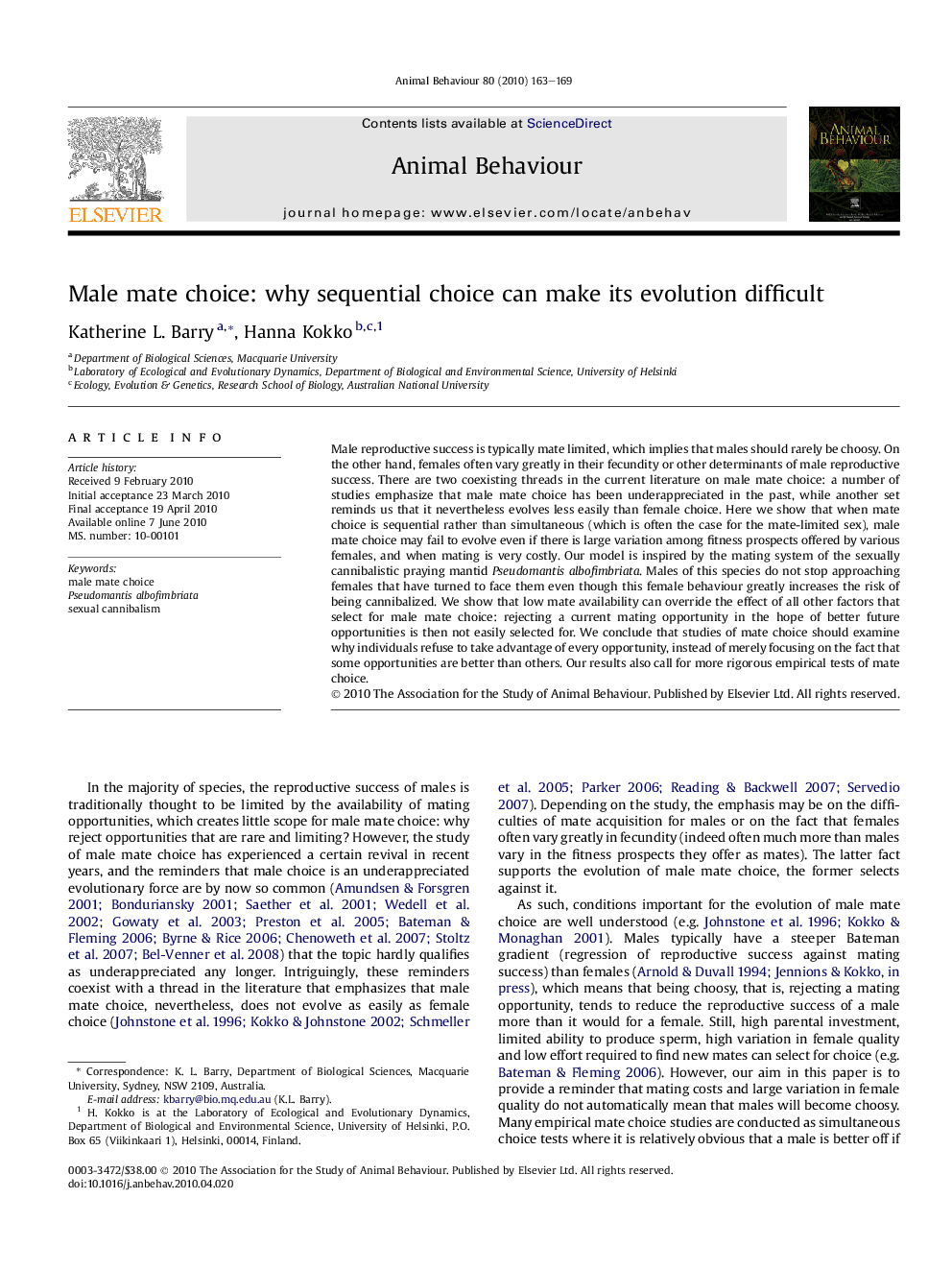| کد مقاله | کد نشریه | سال انتشار | مقاله انگلیسی | نسخه تمام متن |
|---|---|---|---|---|
| 2417283 | 1104314 | 2010 | 7 صفحه PDF | دانلود رایگان |

Male reproductive success is typically mate limited, which implies that males should rarely be choosy. On the other hand, females often vary greatly in their fecundity or other determinants of male reproductive success. There are two coexisting threads in the current literature on male mate choice: a number of studies emphasize that male mate choice has been underappreciated in the past, while another set reminds us that it nevertheless evolves less easily than female choice. Here we show that when mate choice is sequential rather than simultaneous (which is often the case for the mate-limited sex), male mate choice may fail to evolve even if there is large variation among fitness prospects offered by various females, and when mating is very costly. Our model is inspired by the mating system of the sexually cannibalistic praying mantid Pseudomantis albofimbriata. Males of this species do not stop approaching females that have turned to face them even though this female behaviour greatly increases the risk of being cannibalized. We show that low mate availability can override the effect of all other factors that select for male mate choice: rejecting a current mating opportunity in the hope of better future opportunities is then not easily selected for. We conclude that studies of mate choice should examine why individuals refuse to take advantage of every opportunity, instead of merely focusing on the fact that some opportunities are better than others. Our results also call for more rigorous empirical tests of mate choice.
Journal: Animal Behaviour - Volume 80, Issue 1, July 2010, Pages 163–169